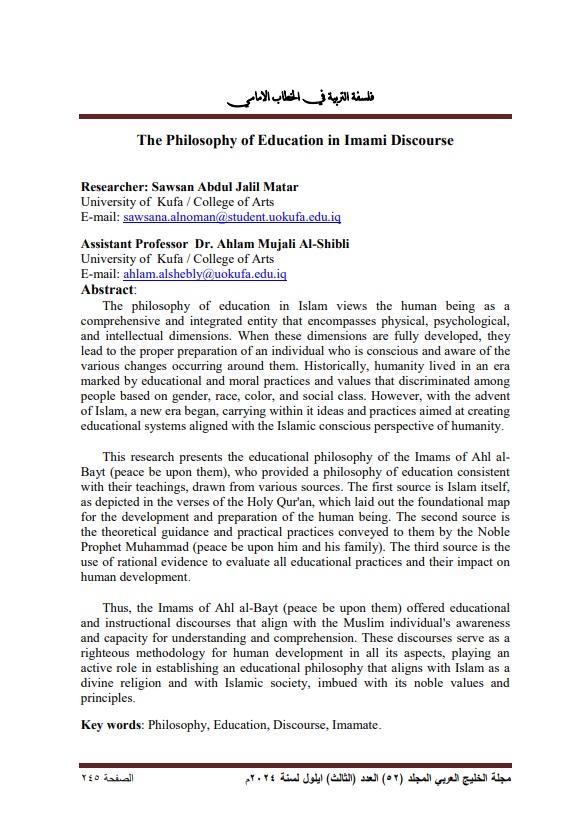The Philosophy of Education in Imami Discourse
Keywords:
Philosophy, Education, Discourse, ImamateAbstract
The philosophy of education in Islam views the human being as a comprehensive and integrated entity that encompasses physical, psychological, and intellectual dimensions. When these dimensions are fully developed, they lead to the proper preparation of an individual who is conscious and aware of the various changes occurring around them. Historically, humanity lived in an era marked by educational and moral practices and values that discriminated among people based on gender, race, color, and social class. However, with the advent of Islam, a new era began, carrying within it ideas and practices aimed at creating educational systems aligned with the Islamic conscious perspective of humanity.
This research presents the educational philosophy of the Imams of Ahl al-Bayt (peace be upon them), who provided a philosophy of education consistent with their teachings, drawn from various sources. The first source is Islam itself, as depicted in the verses of the Holy Qur'an, which laid out the foundational map for the development and preparation of the human being. The second source is the theoretical guidance and practical practices conveyed to them by the Noble Prophet Muhammad (peace be upon him and his family). The third source is the use of rational evidence to evaluate all educational practices and their impact on human development.
Thus, the Imams of Ahl al-Bayt (peace be upon them) offered educational and instructional discourses that align with the Muslim individual's awareness and capacity for understanding and comprehension. These discourses serve as a righteous methodology for human development in all its aspects, playing an active role in establishing an educational philosophy that aligns with Islam as a divine religion and with Islamic society, imbued with its noble values and principles




